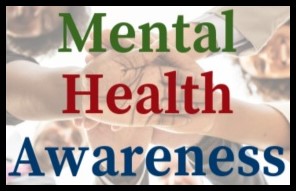
This Mental Health Awareness blog post is about awareness and prevention of suicide, opens a new window.
Any conversation about suicide is difficult. Some people worry that talking about it might cause someone who is thinking about suicide to act on those thoughts. But not discussing suicide at all isn't an option either. Treating suicide as a taboo topic increases stigma. We all need to talk more about suicide, opens a new window. To help those who are feeling suicidal, we also need to know how to recognize signs that someone is at risk for suicide. And, perhaps most important, we need to know how to get help when we or someone we know is considering suicide.
Suicide rates in the United States continue to increase, according to a 2018 report, opens a new window from the Centers for Disease Control and Prevention. According to the Centers for Disease Control and Prevention (CDC), as reported by the NIMH, opens a new window, in 2017:
-
- Suicide was the tenth leading cause of death overall in the United States, claiming the lives of over 47,000 people.
- Suicide was the second leading cause of death among people between the ages of 10 and 34, and the fourth leading cause of death among people between the ages of 35 and 54.
- There were more than twice as many suicides (47,173) in the United States as there were homicides (19,510).
Let's be clear about something. People who are thinking about killing themselves, opens a new window do not want to die. They want their pain to end and they're unable to see any other way to escape that pain.
Sometimes people will let you know that they are thinking about suicide with clear signs, opens a new window:
-
- Threatening to hurt themselves, or talking about wanting to hurt or kill themselves
- Looking for ways to kill themselves
- Speaking or writing about death, dying or suicide in an uncharacteristic way
More often the signs are less clear:
-
- Dramatic mood changes
- Increased use of alcohol or drugs
- Unexplained or uncharacteristic anxiety
- Changes in sleeping or eating habits
- Self-imposed isolation (withdrawing from friends, family, and society)
- Intense rage or uncontrolled anger
- Acting recklessly or engaging in risky behaviors
It is alarming to learn that someone you know is thinking about suicide. Get immediate help from a health care provider or call 911 if someone you know begins to:
-
- Make end-of-life preparations, such as organizing personal papers, paying off debts, giving away possessions or seeking a new owner for their pets
- Say goodbye to friends and family
- Save pills, get a weapon, or seek some other means for ending their lives.
If you are feeling suicidal, or if you have concerns about someone who is, there is help available:
-
- The National Suicide Prevention Lifeline, 1-800-273-8255, en español 1-888-628-9454, is available 24/7. National Suicide Prevention's TTY number is 1-800-799-4889. They also have an online chat service
- The Crisis Text Line is available 24/7. Text TALK to 741741. After you send this first text message, you will receive an automated text asking about your crisis. Based on your reply, the Crisis Text Line team pairs you with a counselor, who will then text you directly.
- Louisiana 2-1-1, also known as Vialink, is available 24/7. Dial 211 on your phone, and speak to someone who specializes in crisis intervention, information, and referral.
- The NAMI HelpLine, 1-800-950-6264, is available Monday - Friday, 9 AM - 5 PM CST. You can also email info@nami.org, opens a new window
- The Military Helpline, opens a new window provides 24/7 free and confidential crisis intervention and sensitivity to military-specific issues. Call 1-888-457-4838 or text MIL1 to 839863.
- The TrevorProject, opens a new window was established to help LGBTQ youth who are in crisis, feeling suicidal, or in need of a safe and judgment-free place to talk. Available 24/7, call the TrevorLifeline at 1-866-488-7386 or visit TrevorProject Get Help Now, opens a new window for help via online chat or text.
- IMAlive uses a chat service to respond to people in crisis. Click the "Chat Now" button to begin speaking with a trained volunteer
- NAMI St. Tammany offers many resources and programs here on the Northshore, including a free, 10-week course about peer-to-peer education for individuals living with a mental illness., opens a new window For more information, call 985-626-6538 or toll free 1-888-521-2297.
This discussion is informational and is not meant to replace a visit to a physician, psychologist, or psychiatrist.
We have compiled a list of St. Tammany Parish Library resources and external websites that have more information about suicide prevention and awareness. Please contact your nearest St. Tammany Parish Library reference librarian, opens a new window if you need help getting any of the items on this list:



Add a comment to: Mental Health Awareness: Suicide Awareness and Prevention